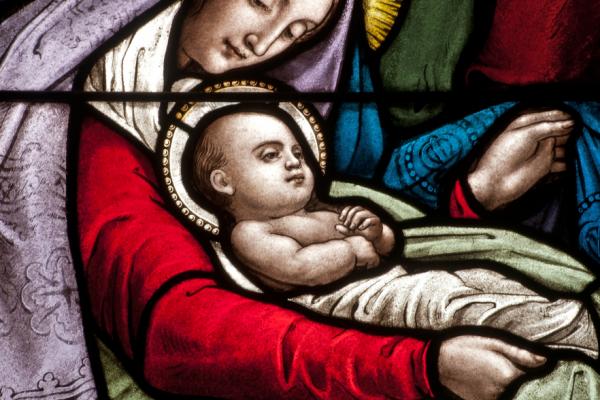I have followed, with great interest, as my friend, Ian Ebright, ran a successful Kickstarter campaign for, and then completed, his short film on American drones called “From the Sky.” It’s a sensitive and nuanced treatment of those on the receiving en of our hi-tech military aggression.
This, combined with all I’ve read at Sojourners and in Time magazine, among other places about these low-risk (to us), high-efficiency (for us) killing machines, helped solidify in my mind a fairly resolute sentiment: Drones are bad.
And then I read, with great interest, my most recent issue of Popular Science, which details the physics and engineering behind these new insect-size drone bots, which replicated insect flight for the first time in the machine world. These highly nimble and portable gadgets are already being used for everything from reconnaissance and recovery on disaster sites to pollinating crops in areas where the indigenous bee population has been decimated.
So, of course, these exciting new breakthroughs left me with only one resolute sentiment: Drones are awesome!
The year 2013 may well come to be known as the Year of the Woman.
Women of high socio-economic status both applauded and lamented the publication of Sheryl Sandberg’s Lean In, while women of a certain age waxed nostalgic over the 50th anniversary release of Betty Friedan’s The Feminine Mystique. Those under 30 were surprised that the latter book existed, and those in their middle years realized the reading assignment that somewhat bored them as inapplicable in college was now vitally important, as they struggled with work/life balance and debated whether to stay home with the kids or remain in the paid workforce.
The “mommy wars” raged, and were fueled by controversial statements and work policies by women in positions of leadership. Stay-at-home moms and paycheck-earning moms stared one another down across a divide narrower than they realized, and bloggers everywhere called for a united female front.
It’s the end of the year and, as always, a great time to reflect on what has happened over the past 12 months. I’ve been blessed to have so many talented and diverse writers share their voices and views alongside me on the God’s Politics blog. I want to take this opportunity to share some of my favorite posts from this past year with you, in no particular order.
Faith
We had so many great posts this year that explored the different facets of our faith. If you haven’t read them yet, make sure you look at:
What Good is a Ph.D. for reading the Bible? by Rev. Dr. Guy Nave
Five Things That Are Holding Christianity Back by Christian Piatt
10 reasons Why Men Should Not Be Ordained For Ministry by Eugene Cho
Women and Girls
Since the 1970s, Sojourners has been committed to resisting sexism in all its forms, while affirming the integrity and equality of women and men in the church and in the larger world. This year we’ve been even more intentional about looking at these topics through our blog and magazine.
If there is indeed a “War on Christmas,” those on the anti-Christmas side of the war have lost — big time.
The television pundits, conservative politicians, and talk-radio loudmouths who believe there is a “War on Christmas” should look around, withdraw their troops, and quit screaming. Because if there is a war on Christmas, Christmas has won.
As Christmas approaches, tens of thousands of churches around the country are planning Christmas services and expecting packed pews. Their choirs are rehearsing Christmas music; and church members have taken the Nativity scene figures out of storage and put them on church lawns. Children costumed as kings and shepherds are learning to sing “Away in the Manger.”
Christmas cards with manger scenes are speeding around the country through the U.S. Postal Service or in the form of online animated greetings that play “Silent Night” and show the wise men following the star to Bethlehem.
The “Duck Dynasty” family issued a statement Thursday evening supporting patriarch Phil Robertson and throwing the future of their successful hit reality show into jeopardy.
The A&E cable channel has put patriarch Phil Robertson, 67, on “indefinite” hiatus from filming after anti-gay remarks he made in the January issue of GQ erupted into debate about free speech.
Now the clan is thanking fans for their support, but isn’t happy about the cable channel’s decision.
In a secularized society obsessed with consumerism, entertainment, and modernization, Christianity is often portrayed as being old-fashioned, irrelevant, and useless, but it still serves some very valuable and profound purposes. Here’s why Americans still need it:
It’s taken me a few years, but I’ve decided to relax about him. I refuse to beat myself up over his presence anymore. He’s okay. I mean, don’t get me wrong — he’s annoying and I have concerns. And I know that many of my fellow parents will disagree, and that’s okay. This makes me cringe, but that little Elf on the Shelf can stay.
After some debate, my wife bought the Elf on the Shelf in 2010. If you aren’t familiar with the Elf on the Shelf myth, it goes something like this: Apparently Santa is incapable of knowing if children have been bad or good on his own, so Dec. 1 to Dec. 24 that Jolly Old Elf sends his little elves to houses to spy on boys and girls. Their job is to check to see if children are being naughty or nice. So, each morning before anyone is awake, our Elf flies in from the North Pole and hides in a different spot in our house. When our children wake up — noticeably earlier in December than any other month — they look for him. Yup, it’s hide-and-seek every morning with the Elf. Then, the National Security Agency Elf spies on our children throughout the day. When our children fall asleep at night, the Elf flies back to the North Pole to provide Santa with a report on how our children have behaved. Then the Elf promptly flies back to our house, hides in a new place, and the morning hide and seek ritual begins again.
Truth be told, my children love it. They. Love. It. They can’t wait to wake up in the morning and search for that little Elf.






